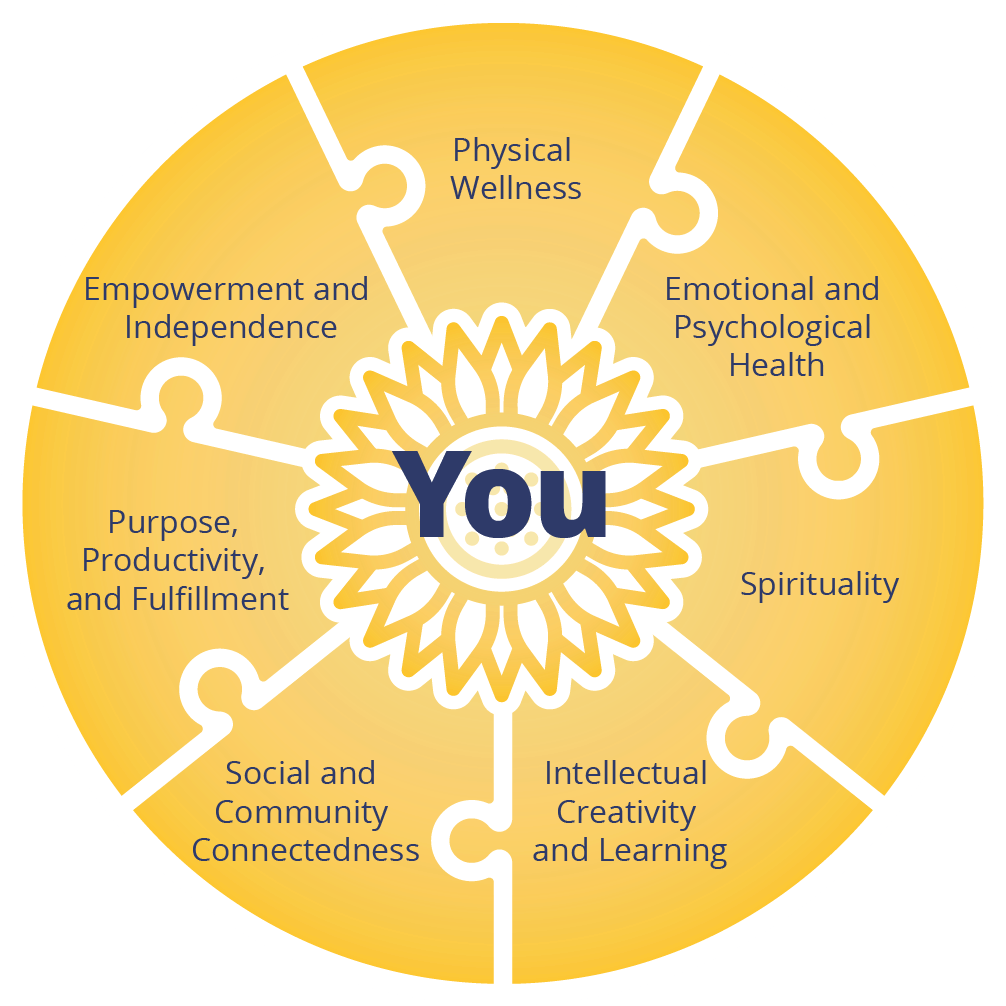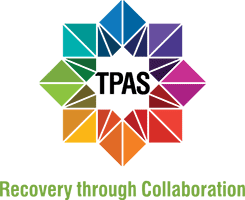If you or a loved one has been diagnosed with borderline personality disorder, avoidant personality disorder, or a related condition, we want you to know:
There is hope.
Our whole-person, sustainable approach to recovery has helped adults aged 18+ with personality disorders heal from trauma, learn how to cope with distress, build healthy relationships with others, and develop well-adapted senses of self.
We can help you or your loved one too.
Recovery is Possible
Our Approach to Healing Personality Disorders
Authored by Eric Levine, Ed.D. and Reviewed by Amy Zimmerman, DO Psychiatrist
A Focus on Wellness & Possibility
For individuals with personality disorders, emotions can feel unbearable, secure relationships can be out of reach, and the world can seem like a hostile, unforgiving place. We understand how harrowing these experiences are, so we meet these individuals at both The Farm (our long-term residential treatment center) and CooperRiis at Asheville (our short-term residential treatment center) with warmth and compassion.
At the same time, we firmly believe that individuals with personality disorders are capable of healing from trauma and living full, gratifying lives. For this reason, we shift residents’ focus away from their pasts and towards the uplifting possibilities we know their futures can hold.
What are personality disorders?
- Having a distorted view of oneself or others
- Expressing emotions in unhealthy ways
- Impaired interpersonal functioning/ difficulty building relationships
- Impulsivity or reactivity
What are the three clusters of personality Disorders?
Cluster A Personality Disorders:
The three personality disorders in this cluster are characterized by distorted thinking, social awkwardness, and social withdrawal.
- Paranoid PD
- Schizoid PD
- Schizotypal PD
Cluster B Personality Disorders:
The four personality disorders in this cluster are characterized by difficulties with impulse control and emotional regulation.
- Antisocial PD
- Borderline PD
- Histrionic PD
- Narcissistic PD
Cluster C Personality Disorders:
The three personality disorders in this cluster are characterized by high levels of fear and anxiety. People in this cluster need lots of reassurance from others.
- Avoidant PD
- Dependent PD
- Obsessive
- Compulsive PD
What are the signs and symptoms of personality disorders?
The symptoms of personality disorders vary dramatically according to type and severity.
Paranoid Personality Disorder is characterized by:
- Generalized mistrust and suspicion of others
- An extreme reluctance to confide in others
- Paranoia
- The consistent misinterpretation of others’ behavior as malicious
- A preoccupation with finding ‘clues’ to validate fears
Schizoid Personality Disorder is characterized by:
- Indifference to social relationships and relationship avoidance
- Indifference to praise
- The expression of a limited range of emotions or the appearance of being emotionally cold and detached
- A lack of close friends and no desire for close relationships
Schizotypal Personality Disorder is characterized by:
- Disturbing thoughts and behavior
Unusual or odd beliefs (aliens, UFOs, etc.) and fears - Odd behavior and/or speech
- Difficulty making/keeping friendships
- Suspiciousness and/or paranoia
Antisocial Personality Disorder is characterized by:
- Antisocial behavior
- Disregard for others’ emotions
- Externalization and minimization of responsibility
- Deceitfulness
- Impulsive and risky behavior
- Hostility and aggression
- Lack of restraint
- General discontent
Borderline Personality Disorder is characterized by:
- Heightened reactivity and sensitivity
- Emotional dysregulation and volatility
- A tendency towards crisis
- Self-destructive behavior
- Difficulty managing slights
- Feelings of worthlessness and insecurity
- Impulsivity
- Impaired social relationships; a pattern of unstable, intense relationships
- Mood swings
- Intense fear of abandonment
Histrionic Personality Disorder is characterized by:
- Excessive attention-seeking
- Intense and dramatic displays of emotion
- The belief that relationships are closer than they are
- A high susceptibility to the influence of others
- Rapidly changing emotions
- Profound insecurity
Narcissistic Personality Disorder is characterized by:
- A preoccupation with one’s own interests and a disregard for others’ feelings
- The inability to empathize
- An excessive need for the praise and admiration of others
- The inability to handle any criticism
- A pervasive sense of entitlement
- Profound insecurity
Avoidant Personality Disorder is characterized by:
- Extreme shyness
Self-isolation - Excessive fear of ridicule, criticism, and rejection
- A preoccupation with looking foolish
- A low threshold for criticism
- Low self-esteem
Dependent Personality Disorder is characterized by:
- Profound insecurity
- Emotional dependence on others
- Excessive people-pleasing behaviors
- Difficulty being alone
- Needy and clingy behavior
- Intense fear of separation and/or abandonment
- Inability to make decisions without help from others
- Utter devastation in response to the end of relationships
- Oversensitivity to criticism
- Inability to start projects or tasks
- The tolerance of mistreatment or abuse in order to stay in a relationship
Obsessive-Compulsive Personality Disorder is characterized by:
- An excessive concern with orderliness and excessive attention to detail
- Perfectionism
- The need to be in control
- An excessive devotion to work
- Difficulty relaxing or enjoying leisure time
- Overly meticulous planning
Although many of these symptoms may be displayed occasionally by healthy, well-adjusted individuals, the intensity and frequency with which they are displayed by those with personality disorders seriously impacts their lives and can harm others.
It is possible for people to be diagnosed with multiple personality disorders at once or a personality disorder and another mental health condition, such as depression. Because there is such a wide range of symptoms associated with personality disorders, it is important to seek professional psychiatric help if you suspect you or a loved one might be dealing with this kind of condition. If you’d like to learn more about getting that help at CooperRiis, call us today.
Can personality disorders go away?
With time, consistency, and the right combination of interventions, recovery from these types of conditions is possible. Therapy is an important dimension of personality disorder treatment, with modalities such as dialectical behavior therapy (DBT), which we offer at our residential treatment centers, showing a high level of efficacy for a wide range of individuals.
Is CooperRiis right for me or my loved one?
Unlike some inpatient psychiatric facilities, CooperRiis is an open, voluntary residential treatment center that operates without locked doors. The individuals with personality disorders who respond best to our residential treatment programs are those who are willing to be a part of our healing community and who are committed to their recovery journeys.
Every individual has unique needs, and the best way to determine if CooperRiis is a good fit is to give us a call. One of our friendly admissions team members can help you determine if our holistic, community-oriented approach is right for you or your loved one.
Dream Statements
Living Mindfully
Cultivating Self-Efficacy
Building Strong Relationships
CooperRiis’ supportive, accepting community is an important facet of recovery for individuals with personality disorders. Through psychotherapy sessions, work crews, interest groups, and shared meals, residents interact with a variety of community members throughout their recovery journeys. Since our staff-to-resident ratio is better than 1:1, the bulk of these interactions occurs in the presence of experts who can give residents the real time feedback and encouragement they need to successfully overcome fears, navigate conflict, and engage in the process of building strong relationships.
Learning to Trust
Flexibility and Adaptability
Integrated, Whole-Person Treatment
Individuals with personality disorders respond best to holistic, multimodal recovery programs. That’s why, rather than relying exclusively on medications or therapy, we combine a variety of evidence-based treatments to address all of the following seven domains of health for our residents:
The Seven Domains of Recovery

Treatment Plans That Meet Residents Where They Are
No matter where they are on their recovery journey, every CooperRiis resident receives personalized care from a multidisciplinary team made up of professionals with expertise in each of these seven domains. While this means every individual’s recovery plan is unique, the following types of treatments have been especially beneficial for our residents with personality disorders:
Growth-Oriented Environment
Mindfulness Techniques
Dialectical Behavior Therapy
Exercise/Movement Practices
Nutrition and Supplements
Medication
Community
Family Education
Our Recovery Model Works
After participating in our program, people with personality disorders:
- Are able to regulate their emotions effectively.
- Can respond to challenges with thoughtful confidence.
- Are more connected to reality.
- Have positive, more stable senses of self.
- Are able to build and maintain healthy relationships with others.
An extensive body of research and clinical experience affirms these findings: Combining psychotherapy with a strong, supportive community, mindfulness practices, physical wellness programs, and an integrative approach to medication can dramatically improve the lives of individuals with personality disorders.
2019 Alumni Survey Results
are engaged in either competitive employment, volunteering, or going to school.
Research Citations
1Enkema, M.C., McClain, L., Bird, E.R. et al. Associations Between Mindfulness and Mental Health Outcomes: a Systematic Review of Ecological Momentary Assessment Research. Mindfulness 11, 2455–2469 (2020). https://doi.org/10.1007/s12671-020-01442-2
2Tomita, A., Lukens, E. P., & Herman, D. B. (2014). Mediation analysis of critical time intervention for persons living with serious mental illnesses: Assessing the role of family relations in reducing psychiatric rehospitalization. Psychiatric Rehabilitation Journal, 37(1), 4–10. https://doi.org/10.1037/prj0000015









